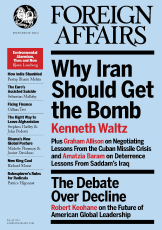After a week of Syrian rebel gains – killing several top security officials and seizing control of multiple border outposts – the Obama administration is being more open about its policy of regime change in Syria. Joshua Landis, director of the Center for Middle East Studies at the University of Oklahoma and an expert on Syria, wrote back in early June, “Let’s be clear: Washington is pursuing regime change by civil war in Syria. The United States, Europe, and the Gulf states want regime change, so they are starving the regime in Damascus and feeding the opposition.”
Now, the New York Times reports the Obama administration has “abandoned efforts for a diplomatic settlement” in favor of “increasing aid to the rebels and redoubling efforts to rally a coalition of like-minded countries to forcibly bring down the government of President Bashar al-Assad.” Andrew J. Tabler, a Syria expert at the Washington Institute for Near East Policy, says “we’re looking at a controlled demolition of the Assad regime.”
Administration officials insist they will not provide arms to the rebel forces. Turkey, Saudi Arabia and Qatar are already financing those efforts. But American officials said that the United States would provide more communications training and equipment to help improve the combat effectiveness of disparate opposition forces in their widening, sustained fight against Syrian Army troops. It’s also possible the rebels would receive some intelligence support, the officials said.
Marc Lynch, a Middle East expert at George Washington University who has actually consulted the Obama administration on the issue, says any intervention – including arming the rebels (or, as Washington is now doing, helping facilitate the delivery of weapons from other states) – is worse than staying out of it.
The events of the last week show that those who believed that only American military action could put serious pressure on Assad were wrong. And the likely downside of direct U.S. military involvement is as potent as ever. The new talking point that an earlier American intervention would have quickly ended the fighting is utterly divorced from Syrian reality. American bombs were never likely to quickly end the conflict, and the open entry of the U.S. into the fray (particularly without U.N. authorization) would likely radically transform the dynamics of the conflict for the worse both inside of Syria and at the regional and global levels. And most Americans, who have not forgotten the experience of Iraq, wisely reject the enthusiasm of the op-ed pages for deeper American involvement. Military intervention by the U.S. has not been and still is not the answer, and the Obama administration deserves great credit for rejecting the drumbeat from the armchair hawks.
Nor should the U.S. be joining the dangerous game of arming the insurgency, which seems to be getting plenty of weapons from other sources. All of the risks of the proliferation of weapons into a fragmented insurgency of uncertain identity and aspirations, so blithely dismissed by the op-ed hawks, remain as intense as ever. There are still vanishingly few, if any, historical examples of such a strategy actually leading to a rapid resolution of a civil conflict, and all too many examples of it making conflicts longer and bloodier. Nor is it likely that providing weapons will provide the U.S. with great influence over the groups they are. I see no reason to believe that armed groups will stay bought, or stay loyal, just because they were given weapons, or that the U.S. would be able to credibly threaten to cut off the flow of weapons if groups deemed essential to the battle used them in undesirable ways. As a general rule of thumb if you really think that a group might join al-Qaeda if you don’t give them guns, you’d best not give them guns.
While it appears true the Obama administration is resisting calls to intervene militarily in Syria, there is not enough scrutiny of the current policy of supporting the rebels with both lethal and non-lethal aid. I’m again reminded of the rhetorical question asked by Secretary of State Hillary Clinton back in February when she argued against arming the rebels: So maybe at the best, you can smuggle in automatic weapons, maybe some other weapons that you could get in…And to whom are you delivering them?…Are we supporting al-Qaida in Syria?”
In the same press conference, she said “military intervention has been absolutely ruled out.”




